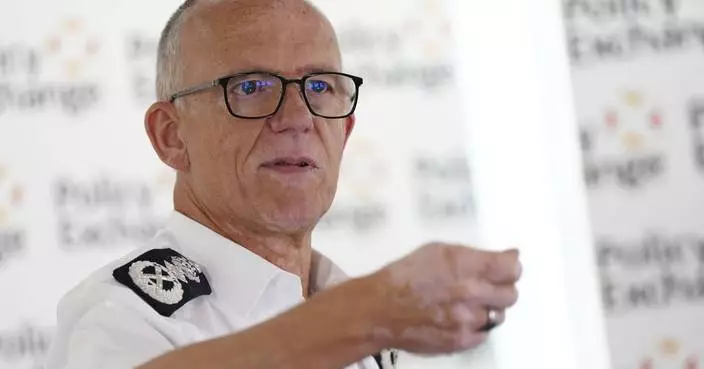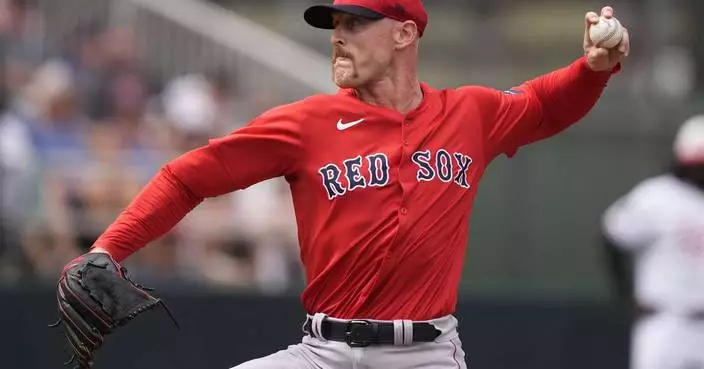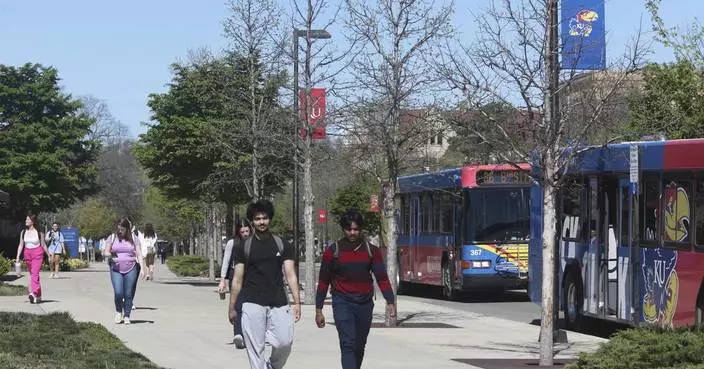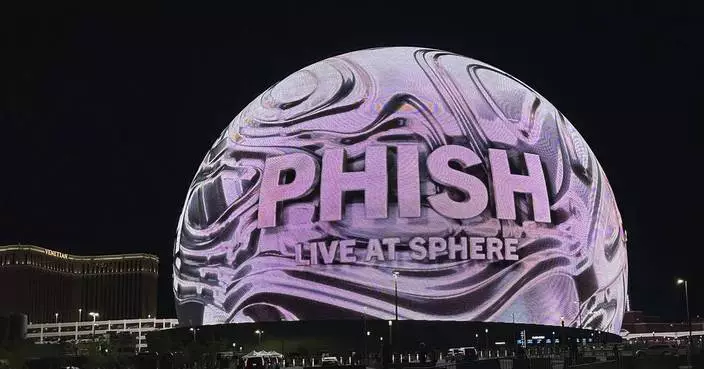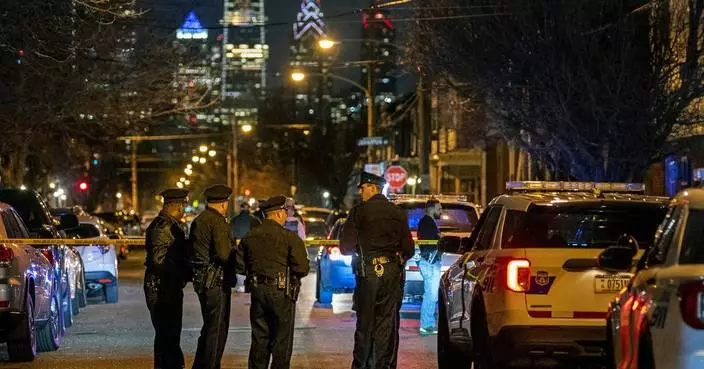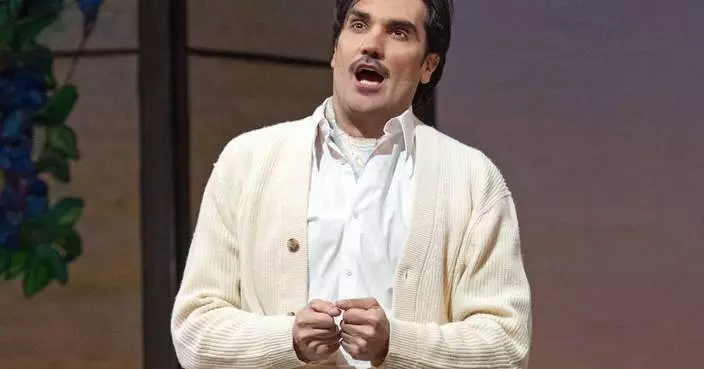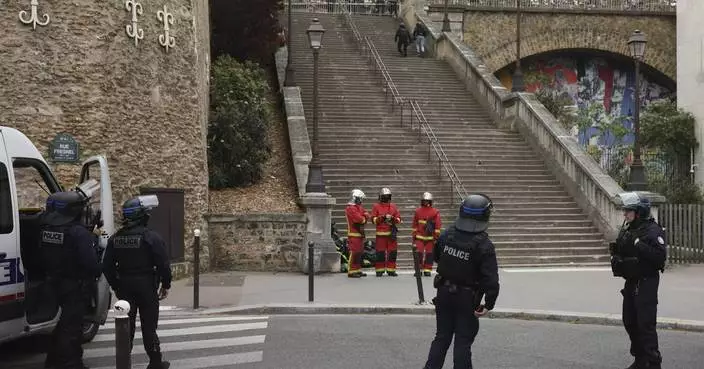Three black teenagers say they feared for their lives when a Minneapolis Park Police officer pulled a gun on them while responding to a bogus 911 report that they were armed.
The July 10 incident at Minnehaha Park drew widespread attention after a bystander recorded part of it and posted a video to Facebook that's been viewed over 2.8 million times.
The officers were responding to a female 911 caller who falsely reported that four teens were following her boyfriend and wielding knives and sticks. Park police released the four after finding they were unarmed and hearing witness accounts that contradicted the caller's story. The department has since said the call was "misleading" and apologized to the boys.
At a news conference Monday called by the Minnesota chapter of the Council on American-Islamic Relations, 14-year-old Aden Aden said he and his friends were just trying to have fun when a white kid confronted them. Witnesses have corroborated that account.
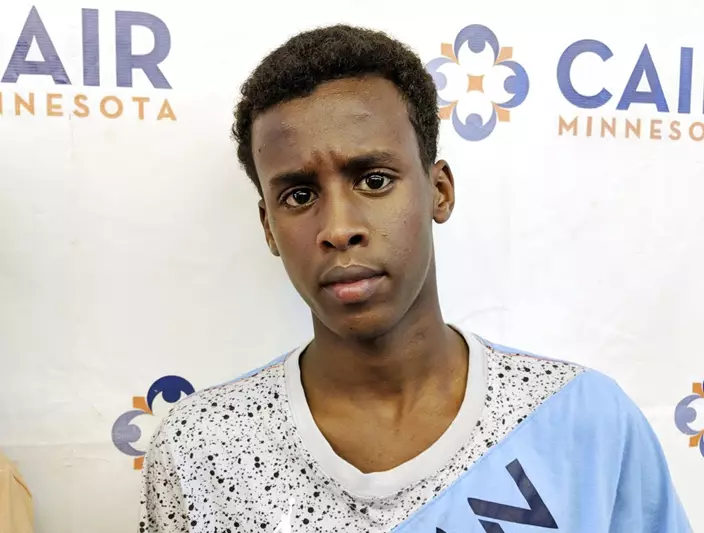
Suhaib Ahmed, 14, attends a news conference in Minneapolis on July 16, 2018. Ahmed is is one of the three black teenagers who say they feared for their lives when a Minneapolis Park Police officer pulled a gun on them while responding to a bogus 911 report that they were armed. The July 10 incident at Minnehaha Park drew widespread attention after a bystander recorded part of it and posted a video to Facebook that's been viewed over 2.8 million times. (Tim Nelson /Minnesota Public Radio via AP)
"When I was at the park, I was just trying to have a good day with my friends," Aden said. "And this white kid came up to us saying racial slurs towards us, and when the cops came, they just pulled guns to our faces. And I felt like I was discriminated (against) and I felt like it was not supposed to happen, and I hope it never happens to anyone again."
Fourteen-year-old Suhaib Ahmed said the officers frightened them. "I was scared he was going to shoot me."
Police said in a news release last week that one of the officers "unholstered his firearm and pointed it in the general direction of the four suspects."
Three of the boys attended the news conference. A fourth did not attend due to a family emergency.
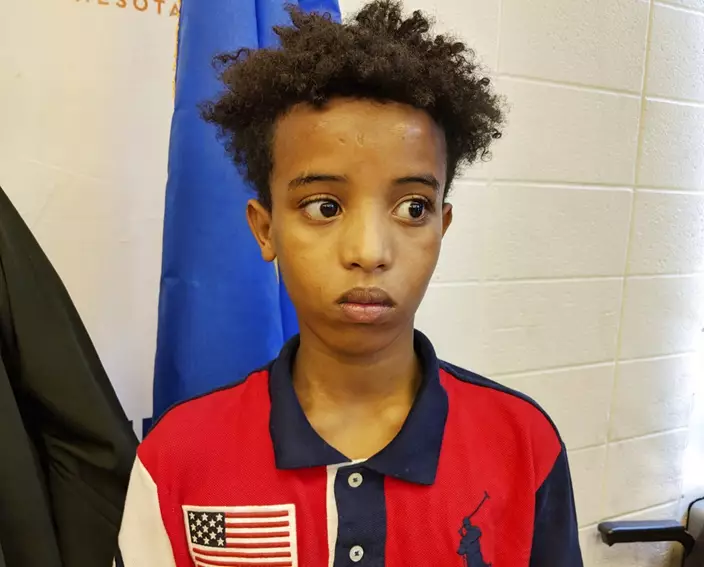
Aden Aden, 14, attends a news conference in Minneapolis on July 16, 2018. Aden is is one of the three black teenagers who say they feared for their lives when a Minneapolis Park Police officer pulled a gun on them while responding to a bogus 911 report that they were armed. The July 10 incident at Minnehaha Park drew widespread attention after a bystander recorded part of it and posted a video to Facebook that's been viewed over 2.8 million times. (Tim Nelson /Minnesota Public Radio via AP)
The woman shooting the video says she saw a boy about 17 years old confront the younger boys and threaten them with a knife. She points out that one of the black teens is being bitten by mosquitoes and that the officer won't allow him to put his shirt back on. Two of the boys can be seen in the video with their hands cuffed behind their backs as they are ushered into the back of a patrol car.
The families of the boys, who are Somali-American, are considering legal action, said Jaylani Hussein, executive director of the Minnesota CAIR chapter, who called the 911 call a hate crime. He did not describe the nature of the proposed legal action.
The Minneapolis Park and Recreation Board, which announced it will form a civilian advisory review council amid the public outcry, said Monday that the incident remained under investigation and pointed out that making a false 911 call is a crime. A board spokeswoman did not immediately return a call Wednesday seeking an update on the investigation.
Park Police Chief Jason Ohotto said last week that his department hadn't identified the caller or her boyfriend, and no arrests have been announced.
SEATTLE (AP) — Jury selection began Monday in the trial of a suburban Seattle police officer charged with murder in the death of a 26-year-old man outside a convenience store in 2019 — the third person the officer had killed in the past eight years.
Auburn officer Jeff Nelson shot and killed Jesse Sarey while trying to arrest him for disorderly conduct in an interaction that lasted just 67 seconds, authorities said. Sarey had reportedly been throwing things at cars.
Citing surveillance video from nearby businesses, prosecutors said Nelson wrestled with Sarey, repeatedly punched him in the head and shot him twice. As Sarey was wounded and reclined on the ground from the first shot, which struck his upper abdomen, Nelson cleared a jammed round out of his gun, glanced at a nearby witness, turned back to Sarey and shot him again — this time in the forehead, prosecutors said.
The case is the second to go to trial since Washington voters in 2018 made it easier to charge police by removing a standard that required prosecutors to prove they acted with malice; now, prosecutors must show that the level of force was unreasonable or unnecessary. In December, jurors acquitted three Tacoma police officers in the 2020 death of Manuel Ellis.
Nelson later said in a written statement that he believed Sarey had a knife and posed a threat before the first shot — and that Sarey was on his knees in a “squatting fashion … ready to spring forward” before the officer fired again. He has pleaded not guilty to charges of second-degree murder and first-degree assault.
An Iraq war veteran, Nelson joined the department in 2008.
The city of Auburn paid Sarey’s family $4 million to settle a civil rights claim and has paid nearly $2 million more to settle other litigation over Nelson’s actions as a police officer.
The trial, before King County Superior Court Judge Nicole Gaines Phelps at the Norm Maleng Regional Justice Center in Kent, is expected to last several weeks. Gaines has ruled that jurors will not hear evidence about Nelson’s prior uses of deadly force or about Sarey’s history of drug use.
In one of those earlier cases, the city of Auburn agreed to pay $1.25 million to the family of a different man killed by Nelson, Isaiah Obet.
Obet had been reportedly breaking into houses and attempting to carry out a carjacking with a knife when Nelson confronted him in 2017. Nelson released his police dog, which bit Obet, and then shot the man in the torso. Obet, on the ground and still fighting off the police dog, started to try to get back up, and Nelson shot him again, in the head, police said.
Lawyers for Obet’s family said he posed no threat to anyone when he was shot. The Auburn Police Department disagreed.
“If Officer Nelson had not acted that day to protect the community, there could have been additional victims,” then-Police Chief Dan O’Neil said in a Facebook post after the family sued.
Nelson also shot and killed Brian Scaman, a Vietnam veteran with mental issues and a history of felonies, in 2011 after pulling Scaman over for a burned-out headlight. Scaman got out of his car with a knife and refused to drop it; Nelson shot him in the head. An inquest jury cleared Nelson of any wrongdoing.
In another case, Nelson used his patrol car in 2018 to strike Joseph Loren Allen, a man suspected of being a felon in possession of a firearm who was running away from police. At the time Nelson struck him, pinning him against a fence and breaking both his ankles, Allen was neither armed nor posing a threat to anyone, Allen's lawyer argued.
The lawyer, Mohammad Hamoudi, compiled a summary of Nelson's uses of force and filed it in federal court. It noted about three dozen times between 2012 and 2018 when Nelson sent his police dog after suspects and about a dozen times when he used neck restraint holds to render suspects unconscious.
The Washington State Criminal Justice Training Commission, which oversees the certification of police in the state, has moved to discipline and possibly revoke Nelson’s badge, saying he has shown a pattern of “an intentional or reckless disregard for the rights of others.”
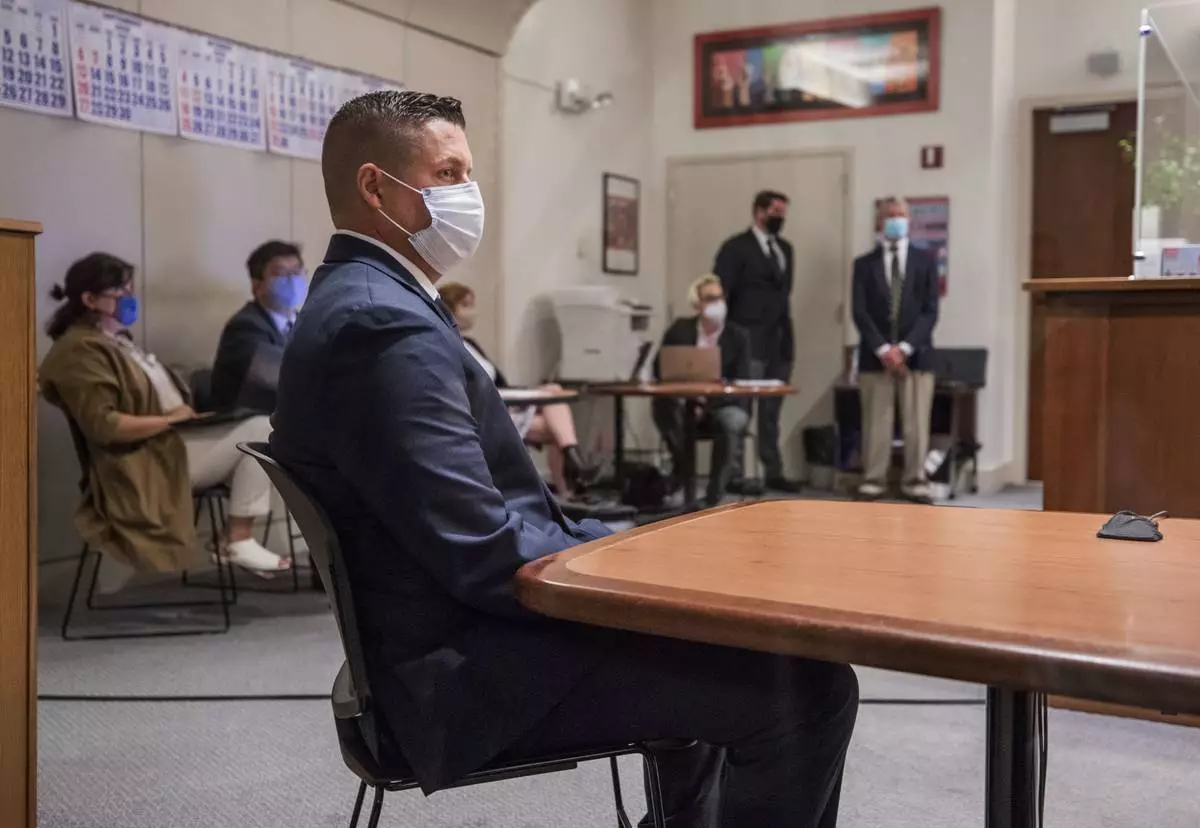
FILE - Auburn police officer Jeff Nelson appears in King County Superior Court, Aug. 24, 2020, in Kent, Wash. Jury selection began Monday, April 22, 2024, in the trial of the suburban Seattle police officer charged with murder in the death of a 26-year-old man outside a convenience store in 2019. (Steve Ringman/The Seattle Times via AP, File)






